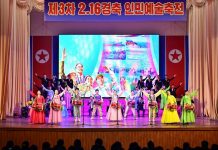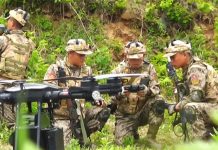By 2018, all public institutions and companies will adopt flexible working times.
Flexible working hours, which were previously only offered to women employees who were either pregnant or just gave birth, will also be offered to employees who are sick or recovering from an accident.
Even workers preparing for retirement will be eligible to apply for flexible working hours, or “flextime.”
The government confirmed the new measures during a policy adjustment meeting presided over by Prime Minister Hwang Kyo-ahn in Sejong City on Monday. The decision to expand flexible working hours is a response to Korea’s thinning labor force and low fertility rate, which are seen as major threats to the country’s economic sustainability. The government believes flexible working hours will bring women back to the workforce after giving birth and make jobs more flexible for workers in other situations.
“Actively adopting flexible working hours will contribute to spreading flexibility in our labor market, a key project that could solve both the low fertility rate and job problems,” Prime Minister Hwang said. He asked the government to focus on coming up with other policies to help flexible working hours take root.
The plan announced on Monday is to convert more than 1 percent of each government institution’s jobs, central or local, to work under flexible times. These employees will work under the flexible system for a given period so that they can better focus on child care or recovering from an accident. Once that period ends, they go back to the full-time working environment.
The government plans to expand the system to 60 percent of the public sector next year, and increase the number of institutions and companies that adopt the system to 80 percent in 2017.The targeted employees include 1,500 working in the central government, 2,900 in local governments and 2,700 in smaller public institutions.
As of the end of the third quarter, only 312 central government employees and 1,100 employees at smaller public institutions were working under flexible schedules. For regional governments as of the end of last year, only 451 employees were categorized as having flexible working hours.
A Ministry of Employment and Labor survey conducted last March on 1,500 adults showed the majority, or 73.6 percent, were interested in flexible working hours, nearly 10 percentage points higher than the previous year.
According to a study by the OECD, the proportion of Korean workers with flexible working hours was far short of the OECD average of 16.8 percent. Korea’s ratio of employees with flexible working hours of less than 30 hours a week was 11.1 percent, even lower than the United States’ 12.3 percent.
BY KIM KI-CHAN, LEE HO-JEONG [lee.hojeong@joongang.co.kr]

![NIS: Kim Jong-un’s daughter Ju-ae entering successor stage An outdoor board at the North Korean Embassy in Beijing displays images of North Korean leader Kim Jong-un and his daughter Ju-ae on Feb. 12. [YONHAP]](https://www.koreadailyus.com/wp-content/uploads/2026/02/0213-KimJuae-218x150.jpg)

![Troublesome delivery robots damage gardens, snarl streets Delivery robots in urban areas including LA Koreatown and Hollywood have been involved in a string of incidents, blocking fire engine responses, crossing police lines at active scenes, and colliding with homes and motorcycles. [KTLA • Reddit capture]](https://www.koreadailyus.com/wp-content/uploads/2026/02/0226-delivery-robot-compile-100x70.jpg)
![Nonprofit leaders accused of diverting millions meant for the vulnerable Judy Baca, who faces allegations of embezzling $5 million, participates in work on “The Great Wall of Los Angeles” mural in 2023. [Sangjin Kim, The Korea Daily]](https://www.koreadailyus.com/wp-content/uploads/2026/02/0226-nonprofit-1-100x70.jpg)
![Family of army veteran killed in San Antonio shooting launches fundraiser A screenshot of the GoFundMe fundraising page created for Kyung Chang Lee. Donations are being collected to support the family of Lee, who was killed in the San Antonio, Texas, shooting. [GoFundMe capture]](https://www.koreadailyus.com/wp-content/uploads/2026/02/0225-KyungChangLee-100x70.jpg)
![Cartel leader’s killing sparks unrest, prompts Koreans to reconsider Mexico trips Downtown Guadalajara in Mexico’s state of Jalisco, which resembled a war zone on February 22 amid arson and other violence by drug cartel members, appears quiet on February 24. The area, usually crowded with tourists and residents, saw a sharp decline in foot traffic and public transportation use. [Pablo Lemus Navarro/X account]](https://www.koreadailyus.com/wp-content/uploads/2026/02/0225-Mexico-100x70.jpg)